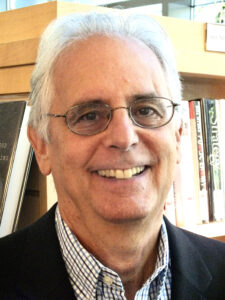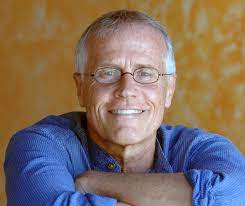By Sam Daley-Harris, the anti-poverty lobby RESULTS
Twenty-eight years ago I wrote a book titled Reclaiming Our Democracy. Maybe that is why it was so hard to read that 52% of young Americans between 18 and 29 years old believe that our democracy is either “in trouble” or “failing,” according to the latest Harvard Youth Poll released in December.
But the young are not alone in feeling despair over the state of our democracy. According to a PBS Newshour/NPR/Marist poll taken before July 4, “67% of all Americans, including majorities of Republicans, Democrats, and independents, believe American democracy is ‘under threat.’”
Hardly good news for action on the climate emergency.
Harvard Institute of Politics Director Mark Gearan tried to soften the blow when he said, “In the 2020 election young Americans proved with their record-shattering turnout that they are a formidable voting bloc and eager to make their voices heard.”

That was encouraging, but not the whole story. The youth turnout was unprecedented, jumping from 39% in 2016 to 50% in 2020, according to Tufts University’s Center for Information and Research on Civic Learning & Engagement. While that was an impressive increase in youth voting, 50% of youth still stayed home on election day as did 28.5% of those 35 years old and older, according to the U.S. Census Bureau.
Many of those who got to the polls might have thought that their work was done. But voting is not enough to renew our democracy or address climate change. We must find deeper ways to make our voices heard on issues we care about.
For example, the Harvard Youth Poll found that, “56 percent of young Americans expect climate change to impact their future decisions — and nearly half (45%) already see its local effects.”
In the lead-up to COP26 in Glasgow, I was almost shivering with excitement when I heard climate activist and Drawdown editor Paul Hawken say, “It’s estimated that between 98 and 99% of humanity is disengaged. Your friends might be engaged,” Hawken continued, “but between 98 and 99% of humanity is disengaged. From the Earth’s point of view, there’s no difference between a climate denier and somebody who understands the problem but actually doesn’t do anything.”

Now there’s a wake-up call. So how do we combat the powerlessness and cynicism that tempts us to throw in the towel?
Johns Hopkins University Professor Hahrie Han provides a good place to start with her distinction between transactional advocacy (sign the petition, transaction complete) and transformational advocacy where volunteers — that’s us — are trained and encouraged to succeed at deep, sustained, relational advocacy.
That means meeting with members of Congress, pitching editorials, writing op-eds and letters to the editor, speaking and bringing new people in and, as a result, seeing ourselves as community leaders.
But you can’t engage in transformational advocacy by yourself. You need an organization to help you. Most nonprofits, however, are stuck in a 501c3, tax-deductible ditch that keeps them from encouraging their members in stronger forms of advocacy.
It’s our job to find an organization that’s committed to helping us climb out of that ditch. Groups like Citizens’ Climate Lobby, Foundation for Climate Restoration, Friends Committee on National Legislation, Catholic Relief Services, the anti-poverty lobby RESULTS, and American Promise do three essential things you should look for when seeking an organization that is committed to empowering you.
They build chapters and bring all of their advocates together for a monthly national conference call. Their organization-wide commitment to expanding the number of chapters and chapter members and to keeping them active and effective is a critical antidote to the 98-99% of humanity who are disengaged.
They provide new skills to their members, producing an ever-expanding team of effective advocates.
And they encourage transformational advocacy, something deeper and more fulfilling than just signing petitions.
In a climate change conversation with John Kerry at Yale in 2017, former Vice-President Al Gore told the audience, “I want to recruit you … we can do this. People doubt we have the political will. Just remember that political will is itself a renewable resource. Go out and renew it.”
I know, that conversation was four years ago and not much seems to have changed. But that’s all the more reason to finally answer the wake-up call and renew political will for addressing the climate.
Make it your New Year’s resolution to build the political will to address climate change. Do it for yourself, for your children and grandchildren, and for our democracy.
Sam Daley-Harris (sam@empoweringcitizens365.org) is the founder of the anti-poverty lobby RESULTS and of Civic Courage and the author of “Reclaiming Our Democracy: Healing the Break between People and Government.”
“The Invading Sea” is the opinion arm of the Florida Climate Reporting Network, a collaborative of news organizations across the state focusing on the threats posed by the warming climate.



